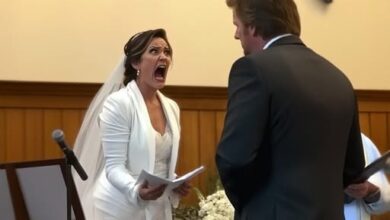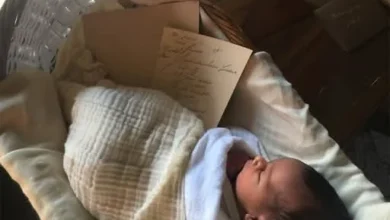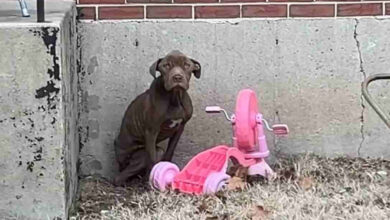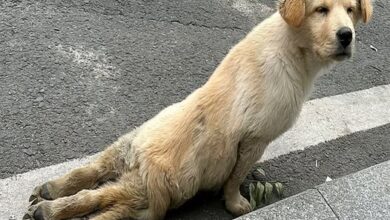The Secret Legacy Of Grandma June
My grandma was the most down-to-earth woman I have ever met. I knew she was rich, but I didn’t know what businesses she had. When she passed away, mom discovered she owned seven small apartment buildings across town and a laundromat that ran 24/7.
None of us had any clue. Grandma June never wore jewelry, never drove a fancy car, and still clipped coupons. She said she liked “the feeling of saving a little,” even if she didn’t need to. Her house was modest, the kind with creaky floors and a swing on the front porch. It smelled like cinnamon and fresh laundry all year round.
After the funeral, when we started sorting her papers, the truth hit us in waves. Grandma wasn’t just comfortable—she was wealthy. But what hit harder than the assets was the way she’d managed it. Everything was in a small notebook, handwritten. No computers, no spreadsheets. Just tidy rows of rent payments, service calls, and small notes like “Mrs. Patel’s water heater—replace next month.”
Mom was overwhelmed. She didn’t want the responsibility of managing everything. She was a school teacher, always tired, and just wanted to grieve in peace. That’s when I stepped up. I was 25, fresh out of college, unsure what to do with my life. Grandma’s notebook felt like a sign.
“Let me try for a while,” I told Mom. “If I mess it up, we can sell.”
So that’s how I ended up moving into one of Grandma’s buildings. Unit 3B. It smelled like old books and lemon cleaner. The previous tenant had left in a hurry, but the place was still cozy, with an old brick fireplace and a tiny balcony with rust on the railing.
At first, I thought I’d just be collecting rent and calling the plumber. But managing those buildings taught me more about people than any classroom ever did.
There was Mrs. Patel in 2C, the one Grandma had written about. She was 78, nearly blind, and baked the most incredible samosas every Saturday. There was Marlon in 1A, a single dad trying to get back on his feet. And then there was Lena in 4D—quiet, always reading, never missed a payment, never said more than five words in the hallway.
Over the next few months, I realized something: Grandma had been more than a landlord. She was a quiet caretaker of an entire little world. She sent birthday cards to tenants. She knocked on doors during storms to check on people. She once paid for someone’s textbooks just because they were struggling. I know this because people started telling me stories. Not all at once, but slowly. In the laundry room, in the hallway, on the front steps.
“She once bought my daughter a winter coat when she noticed her walking to school in just a hoodie,” said Marlon.
“She sat with me for three hours after my husband died,” whispered Mrs. Patel.
It broke my heart that I’d never known this side of her. She had left behind more than buildings—she’d left behind a community.
I decided I wanted to keep it going. I didn’t want to be just a landlord. I wanted to be part of their lives, like Grandma was.
The first big test came during December. There was a snowstorm, the worst in a decade. Pipes froze, the heating in one building failed, and I was on the phone nonstop. I was panicking. But then something unexpected happened.
People helped each other.
Marlon brought over a space heater to Mrs. Patel. Lena cooked hot soup and passed it out door to door. I realized then that Grandma hadn’t just been good to people—they had learned from her. She had planted something, and it was still growing.
After the storm, I threw a little holiday gathering in the laundromat. I brought cookies, hung some lights, and people came. Not all, but enough. It was warm and awkward and wonderful. That night, I found another note from Grandma, tucked into an envelope labeled “Only open when you’re ready.”
Inside was a letter, written in her tidy, looped handwriting.
“My dear, I never cared much for riches. I cared about people. If you’re reading this, you’ve chosen to care too. That’s all I ever wanted. If you do this with heart, the money will sort itself out.”
That night I cried like a baby.
Managing the buildings wasn’t easy. I dealt with broken boilers, late rent, even a hoarder in 3C who hadn’t let anyone inside for years. But every time it got tough, I remembered Grandma’s words.
Then came the twist I didn’t see coming.
One day, about a year in, a man showed up at my door. He was in his late fifties, looked like he’d walked all night. “Name’s Travis,” he said. “June… she was my mother.”
I stared at him.
I had no idea Grandma had another child. Mom was her only daughter. Or so we thought.
“She gave me up when she was 18,” he said quietly. “She wrote me once, when I turned 30. Said she hoped I was okay.”
He pulled out a crumpled letter. It was Grandma’s handwriting, no doubt.
I let him in. We sat on the balcony for hours as he told me his story. He’d been adopted, raised in a good home, but always wondered. He searched a few times, but never found her. Then, after she passed, someone from the county sent him a notification about the estate. He came, not to claim anything, but just to know who she was.
We ended up talking until the sky turned orange. I told him about the notebook, the buildings, the people. He listened, teary-eyed.
“I always wondered what kind of person she was,” he said. “Sounds like she was the kind I always hoped for.”
A few weeks later, I told Mom. She was shocked, then quiet. Then, finally, she nodded. “She always had a sadness she never explained. Maybe this was it.”
Travis didn’t ask for anything. He came by sometimes, helped with repairs. He showed up at the next community BBQ with a cooler full of ribs and a huge smile. People liked him. He didn’t feel like a stranger for long.
One day, he asked if I’d ever thought of expanding.
“What do you mean?” I asked.
“Well, there’s this lot near 8th and Marlowe. Used to be a rec center. It’s just sitting there.”
We went to look at it. The place was run-down, but I saw what he meant. It had potential.
“Imagine,” he said, “a place where kids can do homework, where people can come in from the cold, grab a coffee, even take a class.”
It reminded me of something Grandma once said: “People need a place to go when life gets heavy.”
So we bought it. Fixed it up slowly. Turned it into a center called “June’s Place.”
There was a little library, a computer corner, a kitchen that served soup twice a week, and a bulletin board full of odd jobs and services. We hosted classes—cooking, resume writing, parenting support. We got local teachers to volunteer. People donated books and blankets.
The local paper wrote a piece on it. They called it “a small miracle in the heart of the city.”
But to me, it was just Grandma’s spirit, still alive.
Two years in, I got a letter from the city. They wanted to recognize “June’s Place” with a community award. They asked if I wanted to speak.
I stood in front of a small crowd—neighbors, friends, some I didn’t even know.
“I never knew the full extent of who my grandma was until she was gone,” I said. “But I’ve spent the last few years trying to live like she did. And what I’ve learned is this: wealth isn’t in money—it’s in people. In trust. In showing up.”
People clapped. A few cried.
When I got back home that night, I opened the notebook again. There was one last page I hadn’t noticed. Faint writing in pencil:
“Who you are when no one’s looking—that’s your real legacy.”
That hit me harder than anything else.
Today, the buildings are still running. I know every tenant by name. The rent is fair. Repairs happen fast. And every kid in the building gets a birthday cupcake, just like Grandma used to do.
Travis still helps. Mom visits often. Lena finally opened up—turns out she’s a writer, and she started a blog about life in the building. Mrs. Patel taught me how to make her samosas. Marlon got a job at the center, running the after-school program.
Life has a funny way of circling back. I came into this thinking I’d just manage some buildings. Instead, I found purpose. I found family. And I found that sometimes, the quietest people leave the loudest echoes.
So here’s what I’ll leave you with:
Don’t measure success by your bank account. Measure it by the lives you’ve touched. Be the person who remembers birthdays. Who knocks on doors during storms. Who builds something that lasts.
Because one day, someone will open your notebook—and what they find will tell them exactly who you were.
If this story reminded you of someone, or if you believe in building community like Grandma June did, give it a like and share it. You never know who might need to hear it today.





